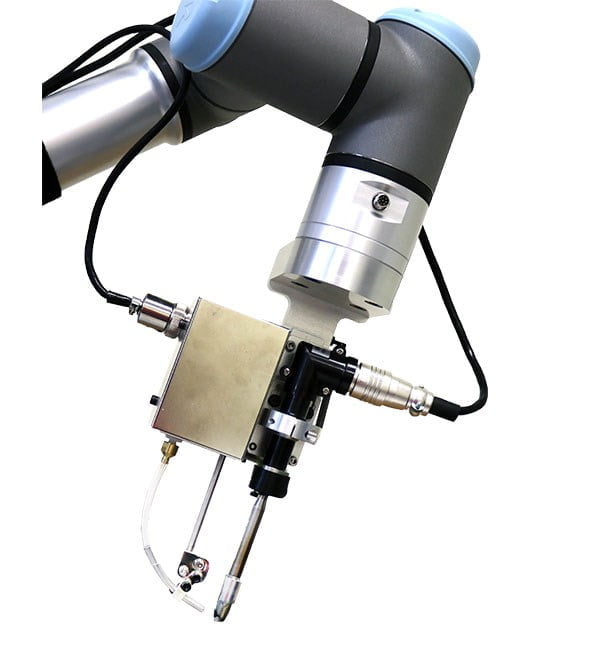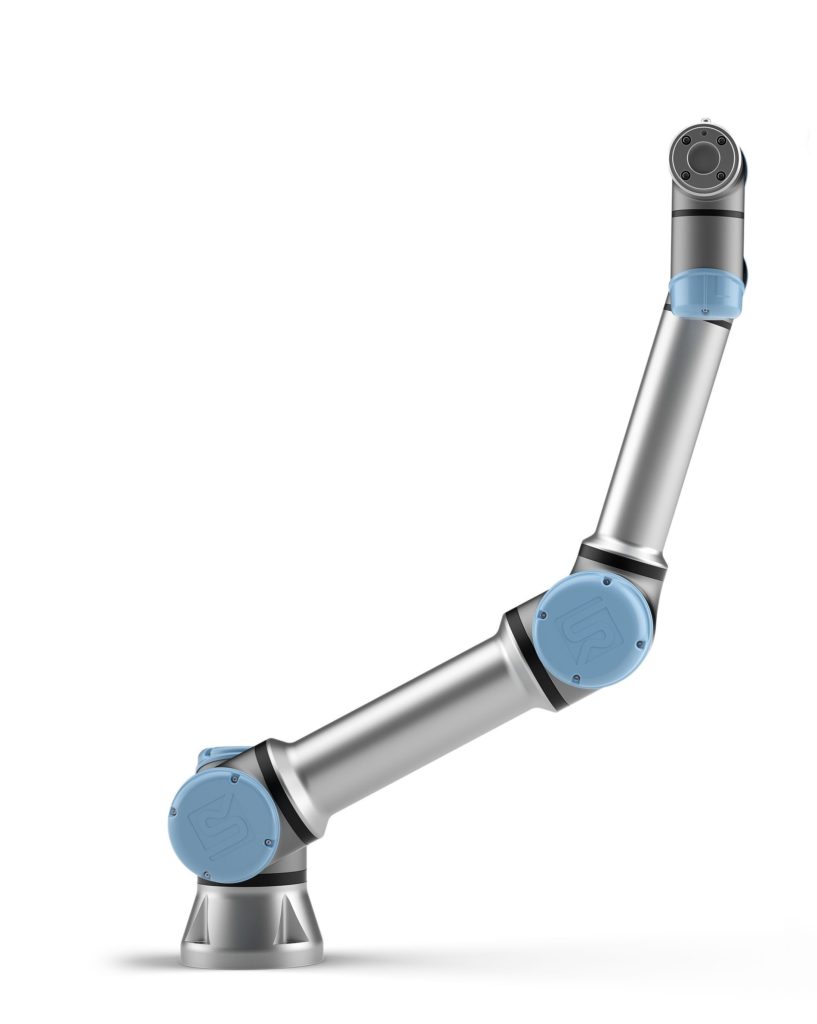
Sanding and polishing
A very monotonous and repetitive task is sanding, polishing or deburring surfaces. It is important to apply the same amount of force to the surface continuously in order to deliver consistent quality. It is practically impossible for workers to do this for 8 hours a day. Cobots are ideally suited for this. Thanks to the sensors built into the cobots, the robot can continuously apply the same force to the surface. Also, the accuracy of the robot ensures that the same contour is followed every time with negligible deviation. In addition, a cobot can easily sustain this task for 40 hours a week.
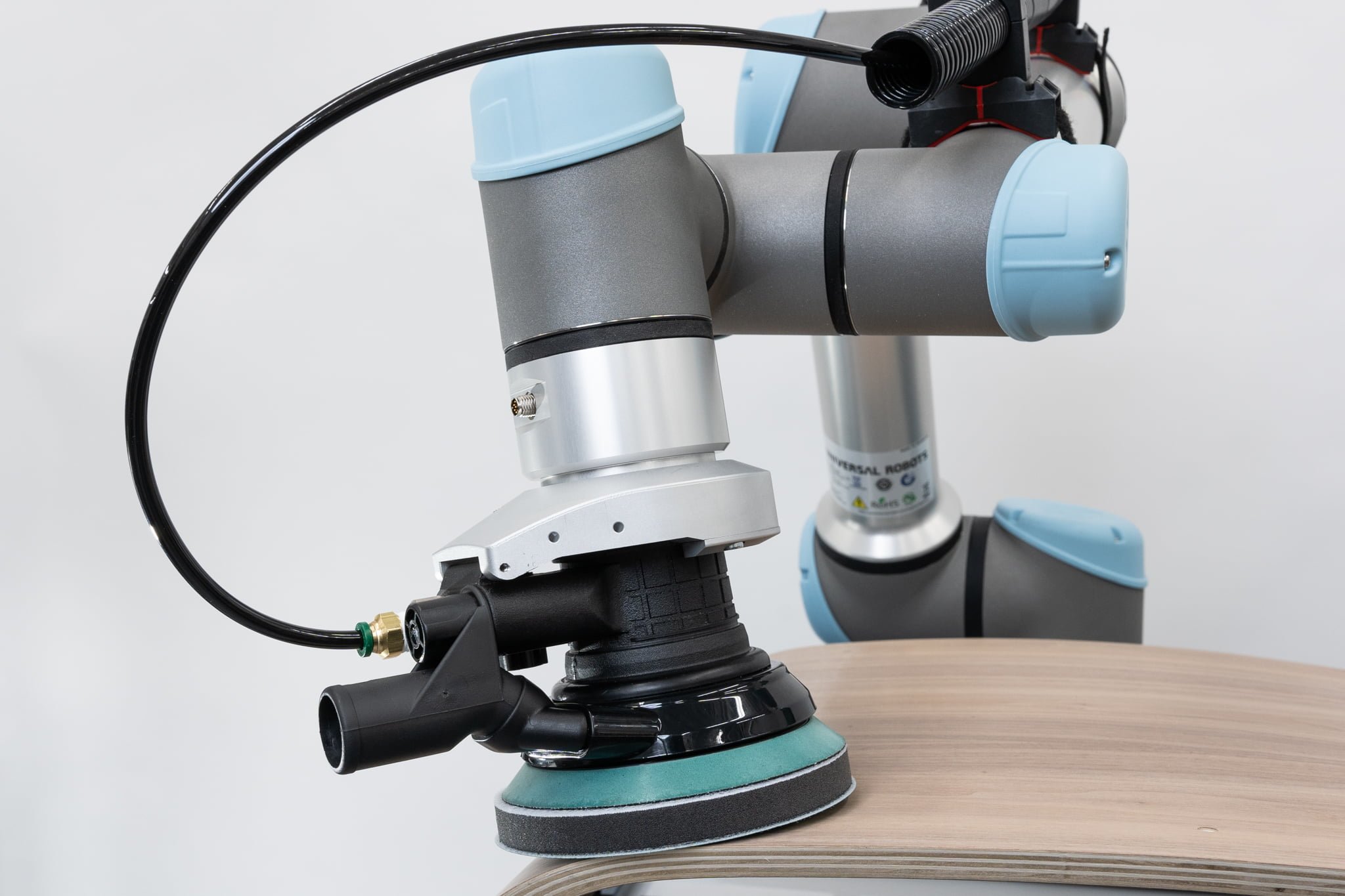
Screwing
Screwing on parts is a simple, monotonous repetitive task that demands a lot from workers. In order to deliver consistent quality, it is important that this task is performed continuously with the same force and precision. In addition, it is difficult for humans to maintain concentration for 8 hours a day, 40 hours a week. For a collaborative robot, this is perfectly maintainable and, if properly automated, can perform it faster than a human. In addition, workers have their hands free to do other tasks that require more creativity and thinking skills.
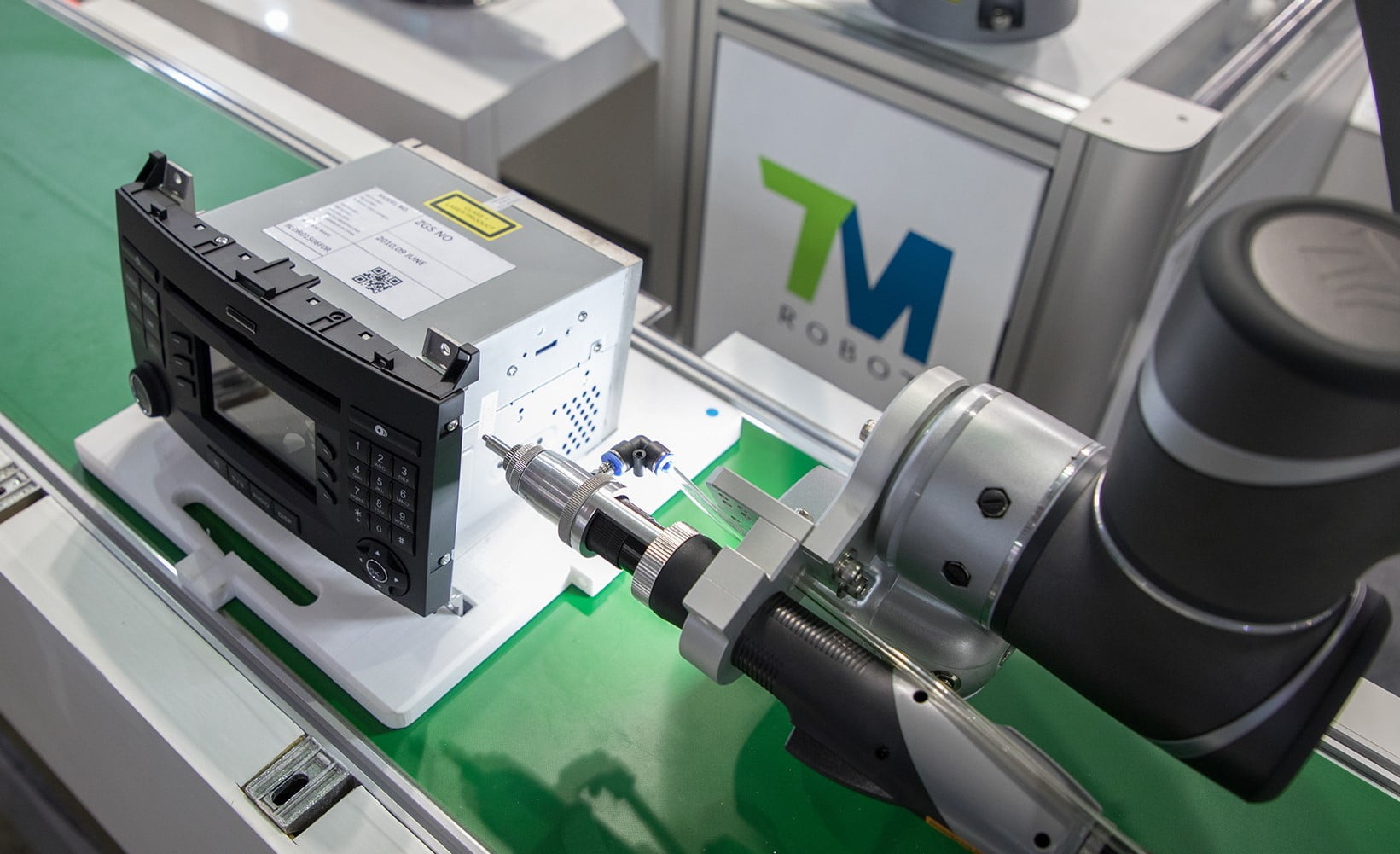
Pick and place
Pick and place is nothing less than picking up objects and placing them somewhere else. Many applications are a variant of a pick and place task. Examples include placing products on a conveyor belt, filling crates or boxes, offering products to an assembly line, or sorting products. Palletizing, bin picking and machine loading are also basically pick-and-place tasks, but more complicated because of the communication with other machines. The complexity of a pick-and-place application is mainly in choosing the right gripper and feeding objects.
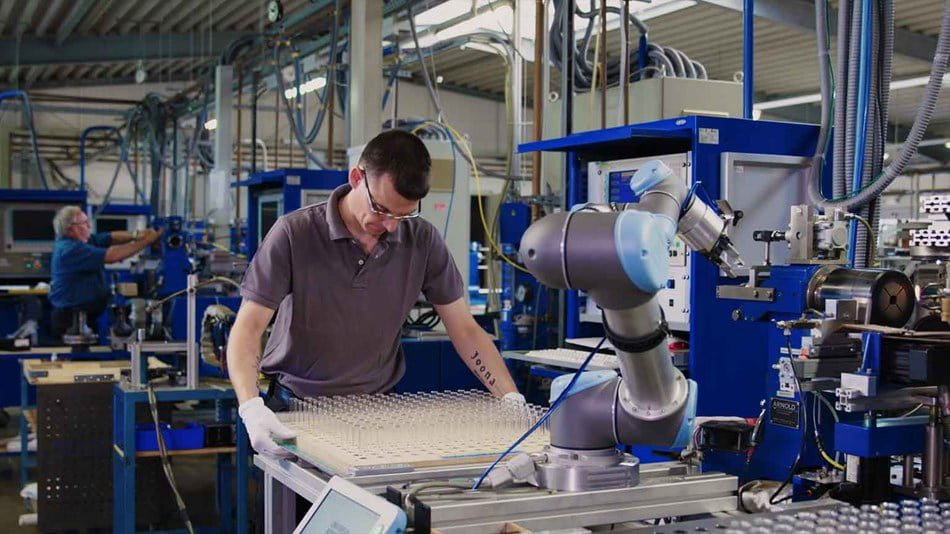
Bin Picking
Bin picking is a complicated pick-and-place application. In bin picking, objects are offered to the robot in an unstructured way in bulk. This means that the robot cannot always go to the same point to pick up the object. Thanks to smart software and vision technology and sensors, the robot can locate objects and pick them up one by one.
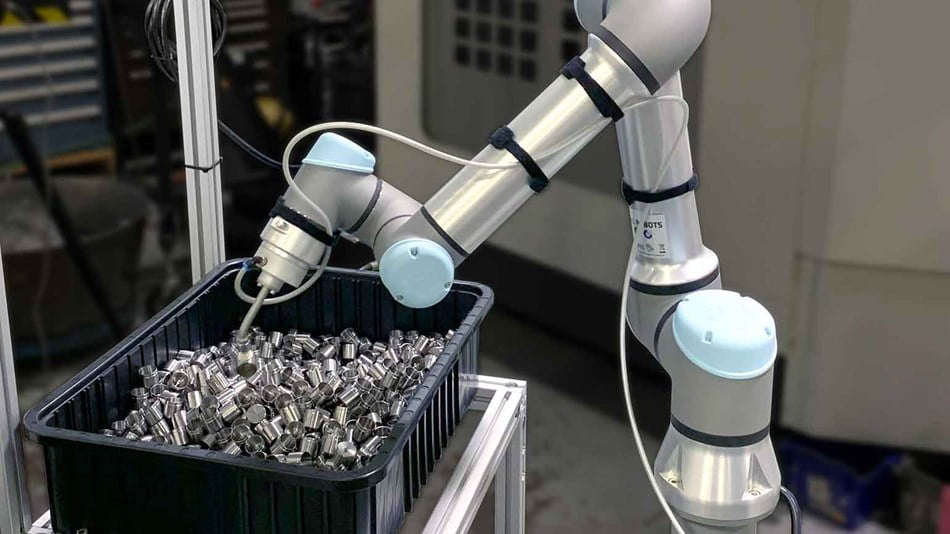
Machine Tending
Machine tending is the placement of parts in, for example, a CNC lathe or bending machine. While the robot does its work, human operators are free. This improves worker safety and frees them up for higher-level tasks. It also improves productivity and production can continue after normal working hours for greater output and business flexibility.
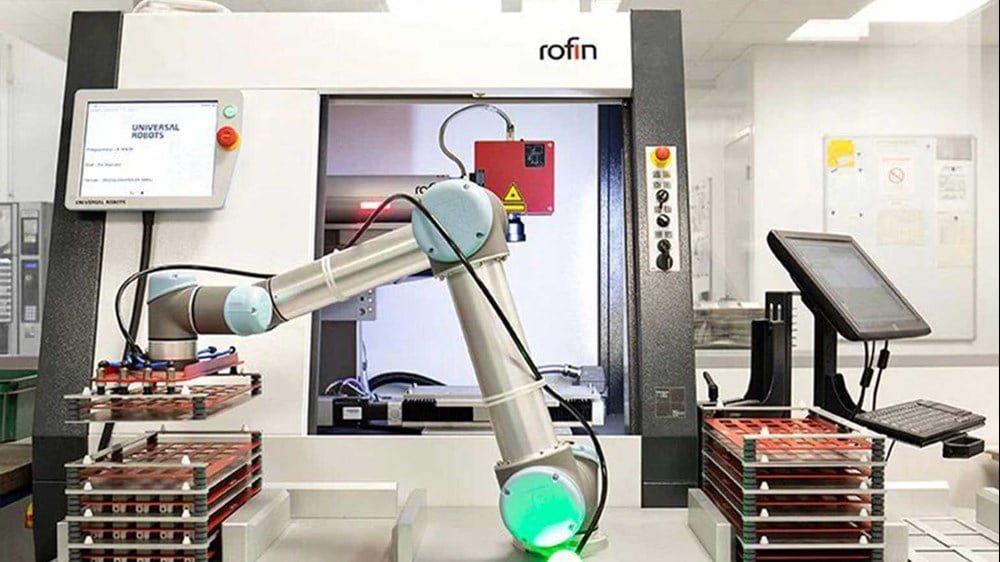
Palletizing
Palletizing (stacking boxes on pallets) can be done more efficiently with collaborative robots. Boxes are picked up with electric vacuum grippers and placed on pallets. New technologies eliminate the need for an external air supply and hoses, which facilitates integration, reduces costs, and reduces noise and nuisance.
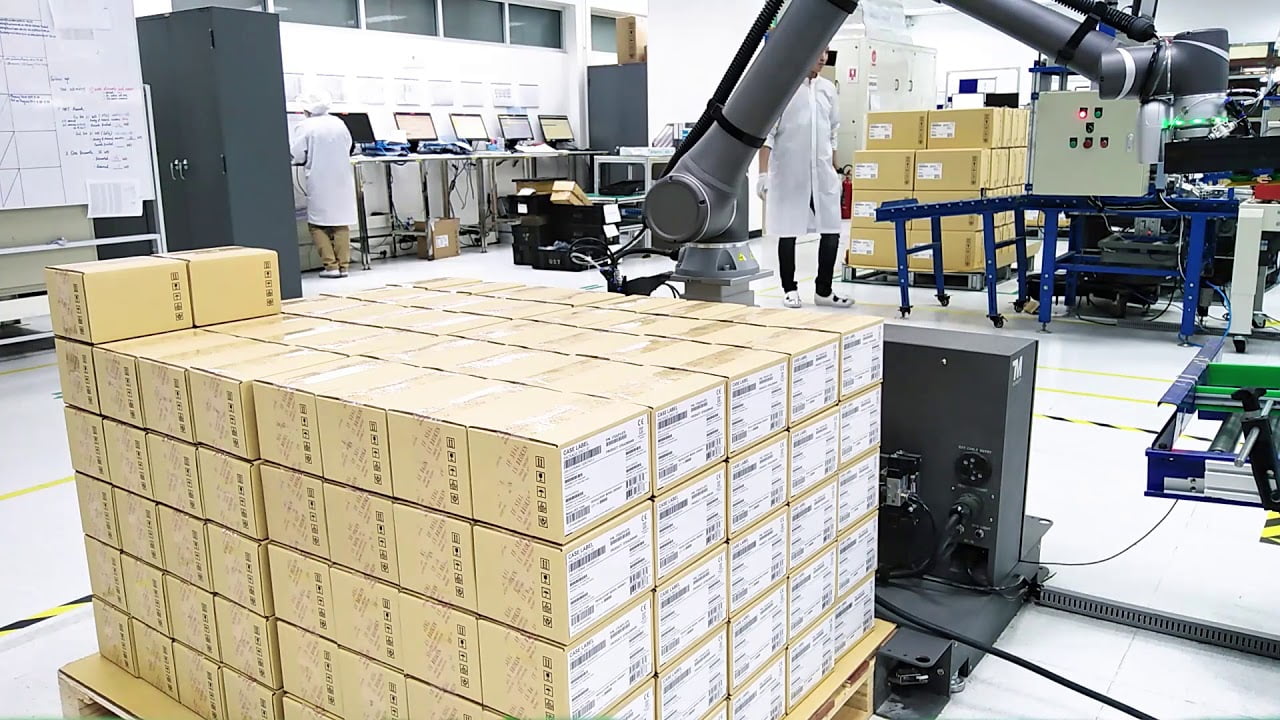
Quality testing and inspection
Cobots can come in handy for quality testing and inspection in many industries. For example, a robot can place objects in a testing device and then sort them. Think about circuit boards or samples in a laboratory. Thanks to vision technology, there are also opportunities for a cobot to perform visual inspections.
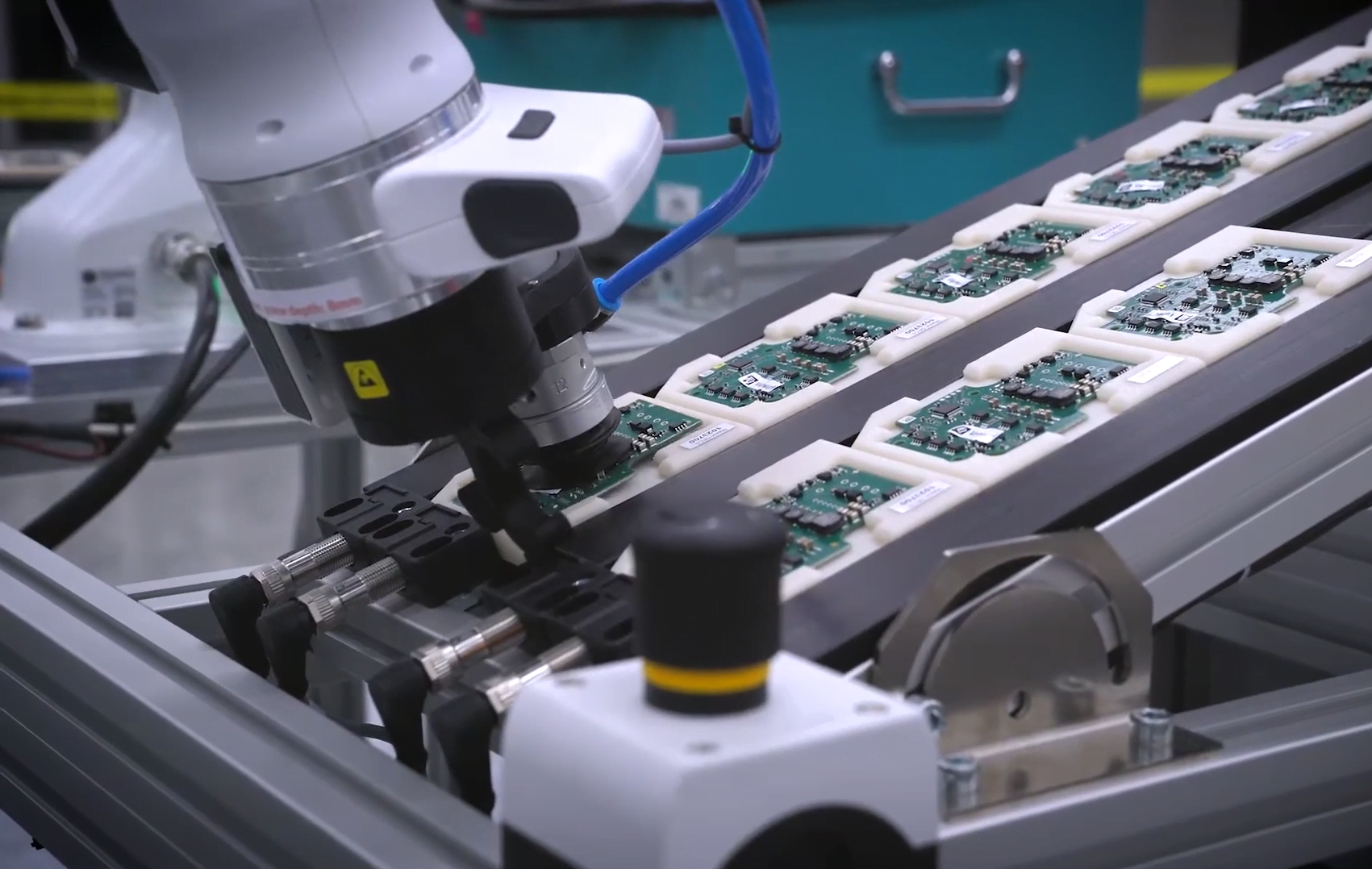
Gluing and sealing
Gluing and sealing are excellent tasks for a cobot. A sealant or glue syringe is mounted on the end of the cobot. The cobot moves along the desired path and distributes the glue or sealant evenly.
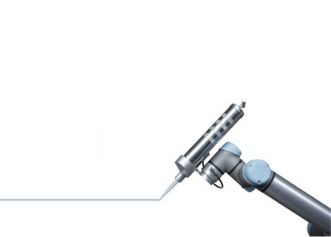
Welding
Welding is a task that must be performed with the utmost precision. Cobots are more precise than humans and will therefore deliver more consistent quality. Cobots can weld in a variety of applications. Think Mig/Mag, Tig, spot welding, arc welding, ultrasonic welding and plasma welding.
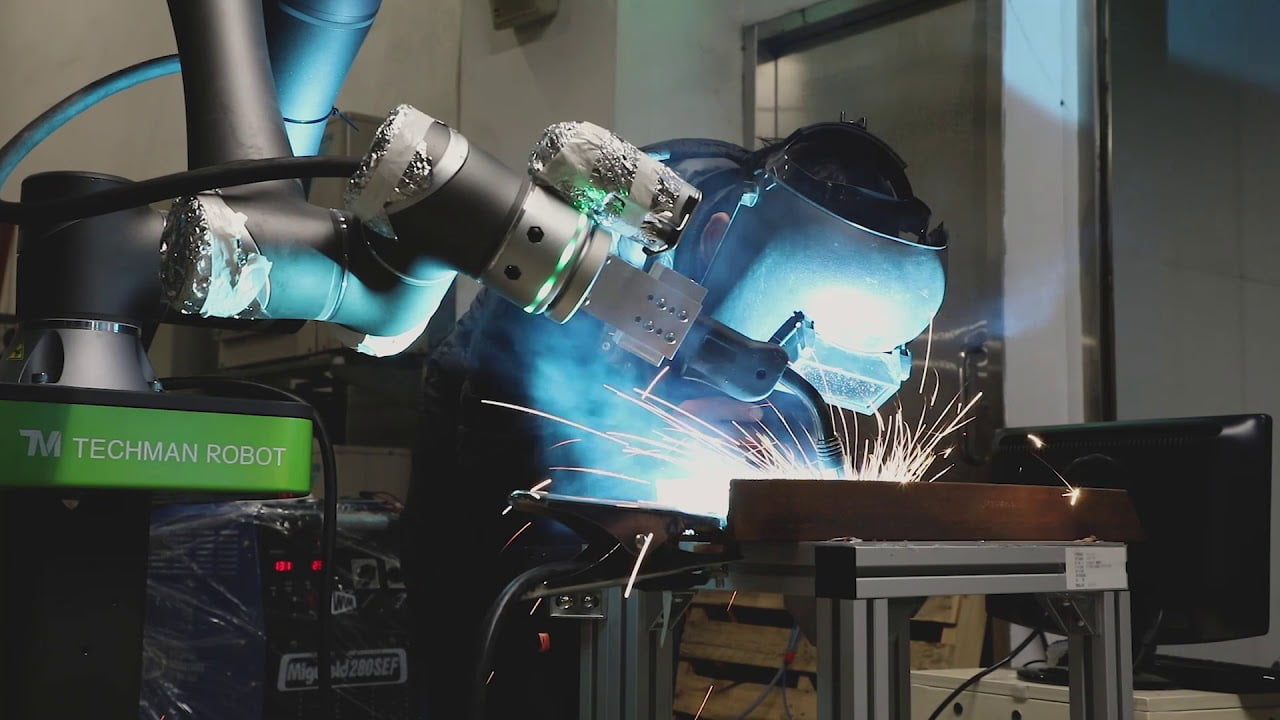
Soldering
Soldering is a precision job that can be perfectly automated with a collaborative robot. Cobots are extremely precise, more accurate than humans, and thus deliver consistent quality. Cobots can do both soldering and brazing.
